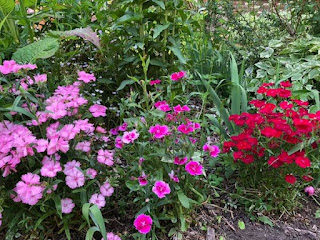On what is a “good” research question.
On what is “good” question.
“Nothing shocks me, I am a scientist” (Indiana Jones, in “Indiana Jones and the Temple of Doom”)
Early on, as students of the natural sciences we learn the scientific method. The principle behind it is hypothesis testing, a process through which a conjecture or hypothesis is put to test with some experiment that allows us to manipulate factors. In ecology, the application of this approach took a little longer than in other fields, probably because the discipline has a strong background of natural history: describing species, where they lived and what they did. We can easily picture the first ecologists as thoughtful observers of nature. Also, manipulating factors, carrying our controls and assuring repeatability are high, often difficult to achieve, goals.
It was in the late 1950’s, and through the strong influence of researchers such as Robert Mc Arthur, that hypothesis testing has become more of rule in the ecological sciences1. The idea that papers begin with a conceptual framework which is confronted to data obtained in the field, in the lab or through theoretical modeling, is nowadays common in the scientific literature.
To a significant degree, teachers of ecology courses at all levels, and student supervisors, invest much effort in conveying how the scientific method should and can be used in ecological research. Often, we repeatedly bring back to focus during talks, classes and meetings on specific issues such as discussion on which specific method is best for a given case or on the best approach analysis our data, by formulating this query: “What is your question, again?”
While I strongly endorse this approach both in my own work and during my lectures and student meetings, I often wonder about the natural history. John Lawton, in his somewhat controversial writing titled “(Modest) Advice for graduate students” published in Oikos 65, in 1992 raised this issue2. While auto ecological studies are interesting, he says, there are millions of species out there, making it impossible to study each in detail and to conclude in this way, nature’s workings. While it is clear that a poor grasp of ecological theory leads to the “wrong” kind of questions, so will a limited knowledge of the species or system we choose as our study model.
As we all know, not all questions that come to mind, are “good” questions. Sometimes we observe fascinating aspects of nature and imagine experiments. Often, though we de not fully handle the basic biology which allows us to set these questions in a proper evolutionary and ecological setting. Here it is when supervisors and teacher play a key role. Let me note here that “good” or “bad” are not the best adjectives to classify anyone’s work, I only use them here to make a point. I could rephrase this by saying which kind of studies (if well executed) will see easier publication in high impact journals. As Lawton (1992) stated in his paper intended for students “avoid picking species because they are cute, ‘interesting’ and cuddly or because nothing is known about it”.
Interestingly, Mac Arthur was often wrong in his interpretation of natural process and systems. Not on purpose but because he dared explore innovative ideas, often with weak data1. He managed to get them published then, but maybe not in today’s publishing world. He started from ideas and then looked for the data, often with limited use of the standing literature. It seems nothing shocked him! But it also generated controversy.
I admire and get excited when I attend talks and seminars that show both, passion and a deep knowledge of biology of the plant, animal, fungus or bacteria they have focused their work on, and a sound theoretical framework. I bow to presenters who, while offering results at geographical scale, study species interactions or tackle the effects of global change on species distributions, or else use several slides to explain their modellng approach, can then take questions as far from their work as for example of the molecular context or on the foraging behavior of the species involved in their work.
So, let us-without doubts- embrace the scientific method heartily in ecological research. But in doing so, I hope we can also keep alive, that curious biologist that is fascinated by nature’s wonders. Also, let us not repress innovation or creativity in thinking our questions. We will often be wrong and will have to deal with (manuscript) rejection, but I’m sure at the end, we will come to “better” questions and a better understanding of how nature works.
1. Fretwell, S.D. 1975. The impact of Robert MacArthur on ecology. Ann. Rev.Ecol.Syst.
2. Lawton, J.H. 1992. (Modest) Advice for graduate students” Oikos 65:




Comments
Post a Comment